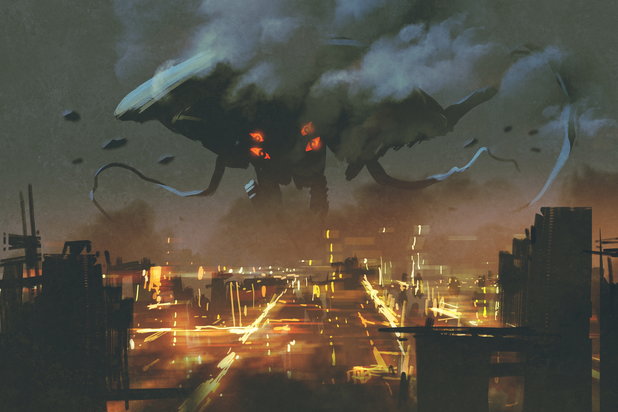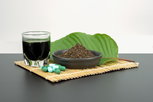There were 695 overdoses in January of 2017 where I currently reside in Louisville, Kentucky. According to CNN, 25 calls were made for opioid overdoses in a 32 hour period the first week in February. By the second week, it hiked up to 151 calls from Wednesday, February 8, to Sunday, February 12.I’ve started attending the Narcan training events that are regularly being held at the local health department, sponsored by Kentucky Harm Reduction Coalition yet, ironically, I am attending a funeral tomorrow. There are whispers on the street that members of local administration are considering putting approximately 22 million people into much-needed recovery and disease control programs. There’s currently a Narcan rescue kit in my purse. I half expected it to be missing by the time I left a memorial visitation two days ago.
I’ve been asked from non-Louisvillians what it’s like living in the midst of an opiate crisis. To answer that, I can say that whatever “war on drugs” means today, we’re right in the battleground. I can also say that a friend called after stopping traffic to help a stranger who quite literally overdosed and died on the street. Would anyone believe that she got honked and yelled at for stopping traffic—that we’re becoming this numb? Can I say my city is sprinkled with the walking dead?
Aside from inescapable, I’m not really entirely sure how this all feels, because as soon as I start to process what’s happening, I find myself attending another funeral. Yesterday, in fact, we buried my father’s fiancé. Addiction and alcoholism are irreverent and indiscriminate to things that we as humans usually use to differentiate ourselves from each other. Emergency rooms are pressured under the weight of reviving what patients they can, or rerouting to morgues that are processing familiar faces; families are breaking, and parents are burying their children. A local ER employee, wishing to remain anonymous, simply states, “I’m bagging half my patients. The ones we can save often wake up angry just to pull out their IVs, say they don’t belong here and leave, only to return unconscious hours later.”
This is our reality.
As someone with multiple years of sobriety, I find myself trying to maneuver around the active alcoholism and addiction of those I care about, questioning what the next right thing is supposed to be. It’s not often that I truly don’t know in my heart what to do to be of maximum service to my fellows, but this has been a constant question nevertheless, pressing harshly on my conscience. I don’t know if this will be the last time I talk to someone (again). I don’t know if I’m being pushy or supportive anymore. Feeling so lost and powerless leaves me with deep humility and acceptance that I don’t have answers I feel like I need in order to help.
Some days, I mostly rely on phone notifications and alarms to get me where I’m supposed to be because I can’t readily recall what day of the week it is—I’m just trying to not start sobbing in the middle of a birthday party, at work, or in line at the book store. Survivor’s remorse is a real thing. I know I have to stop constantly questioning whether I’m doing enough to earn my spot in waking up another day. I know I have to just answer the phone or get out of bed, suit up, show up and continue with life anyway.
Listening to a desperate call from my own father, I realize I want to say a few things to the active addicts and alcoholics that remain in my life; to him, to my friends. I want to say:
Say you won’t leave. Say you won’t give up. Say you’ll try harder. Say anything to make me believe my next phone call won’t be to tell me that you’re gone. Because when that time comes, I still have to go to work; I still have to put gas in the car I’m lucky to be able to drive again, I still have to run errands and put groceries away. I still have to do “normal” things. I have to find a way to do all that only wishing for a moment that anything at all could make you still be here with me. I don’t want to let you go. I don’t want to wonder how long I’ll feel the vacuum of you not here. I don’t want to have to look at your family members and former loved ones and be rendered unable to speak across the gap of what the pain of losing you will do to us all.
In the wake of what drugs and alcohol tear apart, we can still come together. We realize that we don’t have to do it alone, that we could just pick up the phone, and so the oceans and chasms between us solidify and we walk together across the roads that make up the human experience.
It’s not over; it will never be over. We have to find a way to not leave anyone behind. We must find a way to put human faces and human experiences behind the statistics, lest we ever forget that this pain is optional and we can fix this, together. We must rebuild. We’re dying alone and we can make today the day we choose to live, built for grasping hands and dragging each other out of the madness. It’s not the end for all of us. It’s just a beginning where we don’t have to have it all figured out or know how to save ourselves in order to save each other from the morbid loneliness and despair that finds us all “out there.”
If we love one person, it’s not over for us, or for them. May we always find them well and find the love in our hearts anyway, in turn, finding ourselves. That’s what I think about, living in an opiate crisis. I’m thinking life is far too short to make the impact we need; hell’s kitchen is about the size of a spoon, and smells a lot like a funeral home. But all is not lost and I am not alone.
Are you or someone you love ready to get help? Browse our directory of rehab centers or call 866-724-4427 to inquire about addiction specialists in your area.
And with heavy hearts, we ask to be held in loving memory the deep and immeasurable impact the following souls had on our lives:
Heidi Ann Clark 2/19/74 - 3/14/17
J. Griffin Kelley 6/26/77 - 1/2/17
Rebecca Jill Whitman 10/20/74 - 2/28/17
Drew Manning 2/21/86 - 2/12/17
Korinna Bayens 3/23/96 - 12/15/16
Erik O'Green 5/12/87- 12/2/16
Brenda Kuhn-Estep 10/13/16
Susan Renee Feltner 2/3/78 - 9/10/16
Danny Avery 7/23/92 - 8/3/16
Staci Westrick 8/31/86 - 6/8/16
Sarah Panquita Brantley10/20/82 - 5/10/16
Tiffany Carlysle 11/10/90 - 1/23/16
Jessica N. Macdonald 8/28/90 - 11/26/15
Erin Lee Floyd Cates 2/4/87 - 10/24/15
Doug Wilkerson 12/11/89 - 6/25/14
Matthew W. O'Connell 3/13/81 - 5/3/14
JPH 9/17/83 - 9/15/2013
Anthony "Wesley" Jenkins 2/13/90-5/28/13
Nathan Bartley 8/9/90 - 12/1/12
Dallas Samuel Lawrence Seifring 6/3/88 - 10/25/09
Jason Moran 5/24/81 - 9/16/05
References:
1. Ellis, R., and Keith Allen, K. Overdose cases spike in Louisville: 52 calls in 32 hours, CNN. 13 February 13, 2017 http://www.cnn.com/2017/02/11/health/overdoses-spike-in-louisville/. Accessed on March 23, 2017.
2. Moghe, S., and Wayne Drash, W. 'He's blue': Louisville rattled by 151 overdoses in 4 days, CNN. Tue 14 February, 2017 http://www.cnn.com/2017/02/14/health/heroin-overdose-louisville-opioid-responders-eprise/. Accessed on March 21, 2017.








